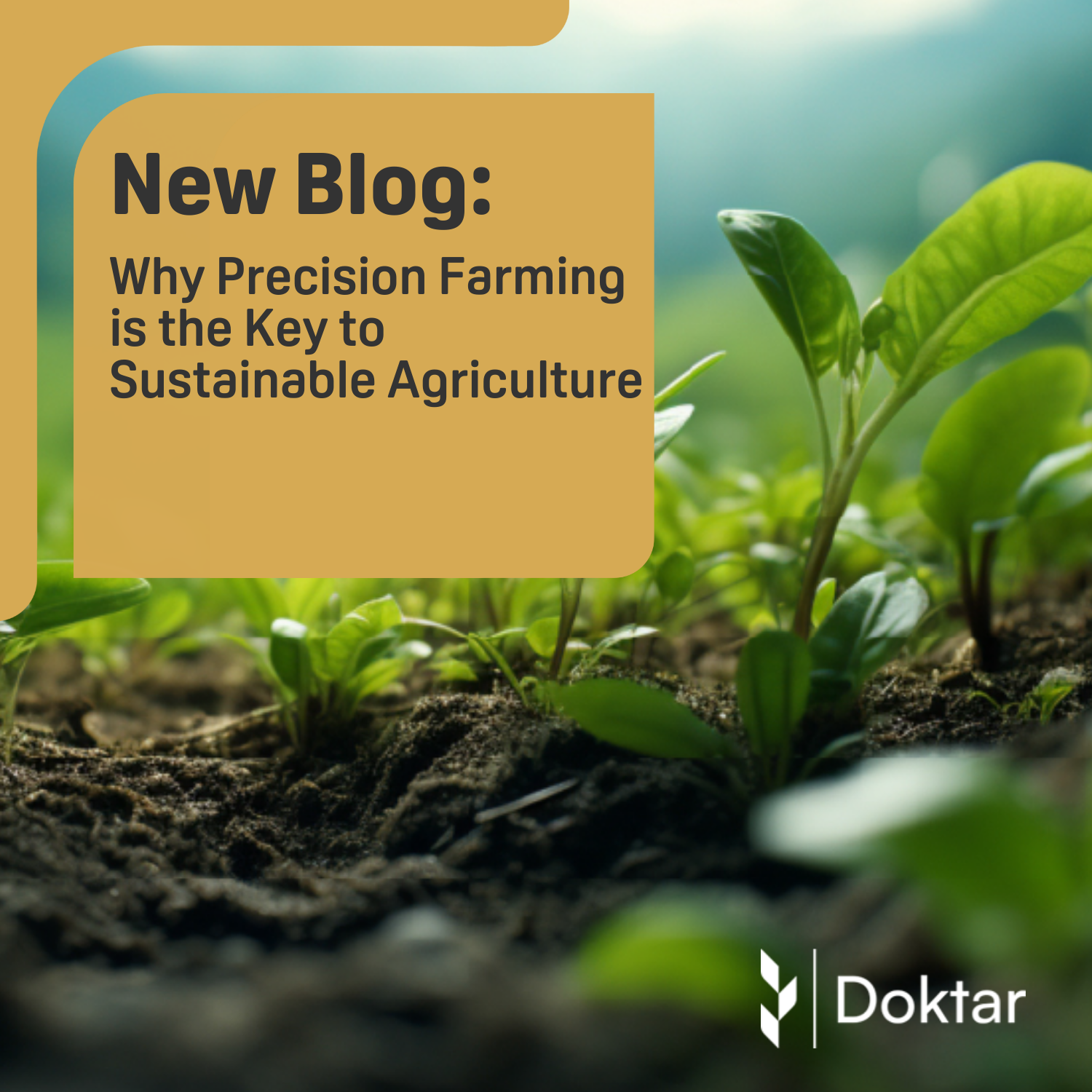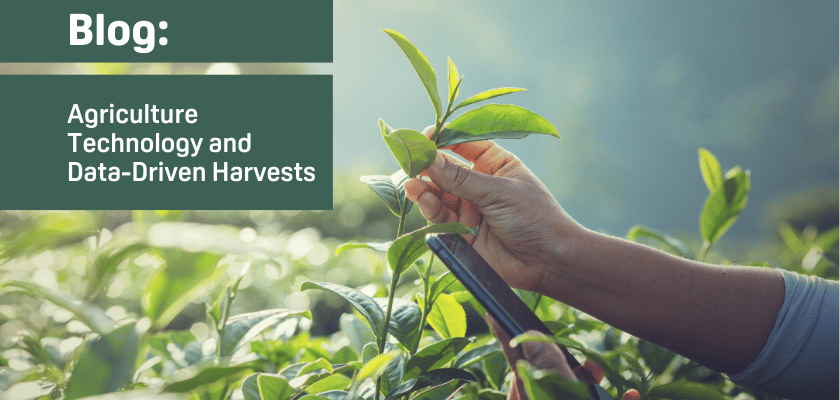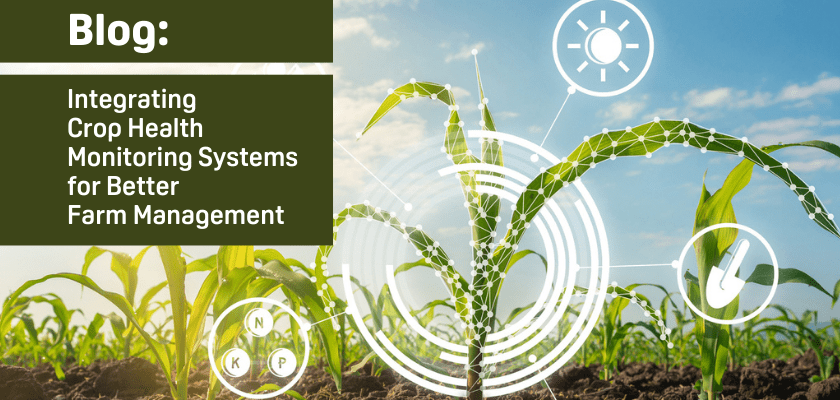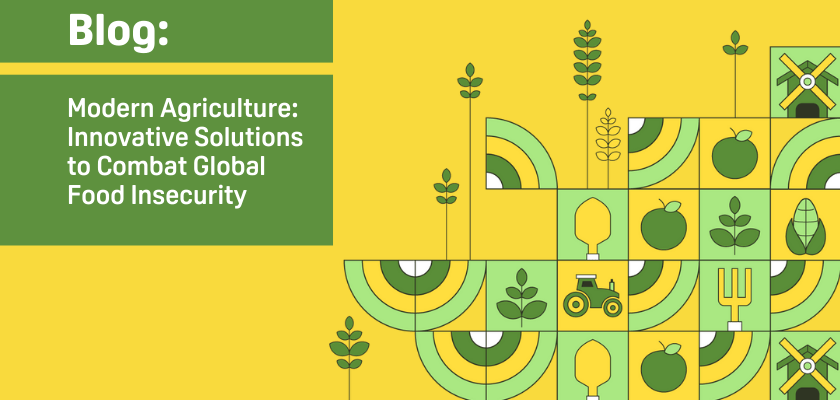

Why Precision Farming is the Key to Sustainable Agriculture
Precision farming is a modern agricultural approach using data-driven technologies like sensors, AI, and satellite imagery to optimize crop management. It enhances resource efficiency, reduces waste, and increases productivity by enabling tailored care for different field zones. This promotes sustainability by lowering environmental impacts, improving yields, and cutting operational costs.
Published on 16 October 2024
Precision farming has become a vital strategy for promoting sustainability in today's rapidly evolving agricultural landscape. With growing concerns about environmental impact, resource scarcity, and the need for increased food production, precision agriculture offers a solution that optimizes resources, reduces waste, and enhances productivity. This blog will explore the steps, benefits, and technological innovations in precision farming and how they shape sustainable agriculture's future.
What is Precision Farming?
Precision farming, also known as precision agriculture, involves using technology to ensure that crops and soil receive exactly what they need for optimal health and productivity. Farming management relies on observation, measurement, and response to variability within and between fields. Unlike traditional farming practices that often apply a "one size fits all" approach, precision farming allows customized care for each plant or field section.
At the heart of precision farming is data. This data is gathered from various sources such as satellite imagery, sensors, drones, and IoT devices, which monitor everything from soil moisture levels to weather patterns. Farmers can make informed decisions on when and how much to irrigate, fertilize, or apply pesticides, thus increasing efficiency and reducing waste.
The Steps of Precision Farming
- Data Collection: Precision farming begins with collecting real-time data using technologies like Doktar's Filiz sensor stations. Filiz monitors soil moisture, temperature, and humidity, providing farmers with critical information about their crops' needs.
- Analysis: Once the data is collected, AI algorithms, like those found in Doktar's Orbit platform, analyze it to detect patterns and predict future conditions. For example, Orbit uses satellite imagery to identify problematic areas within a field that may need special attention.
- Empowered decision-making: With the analyzed data at their fingertips, farmers are in the driver's seat, able to make precise decisions. For instance, if a field section shows water stress, Doktar's Plant Water Stress Map offers irrigation recommendations tailored to the crop's phenological stage. This level of control and confidence in decision-making is a crucial benefit of precision farming, making farmers feel empowered and in control of their operations.
- Action: With the insights gained, farmers implement the necessary actions, such as adjusting irrigation, applying fertilizers, or addressing pest issues. Precision farming systems like Doktar's Variable Rate Application (VRA) tool, available in Orbit, allow for differentiated input application, ensuring that each zone in the field gets the right amount of resources.
The Benefits of Precision Farming
Precision farming offers several significant benefits contributing to more efficient and sustainable agricultural practices. One key advantage is resource optimization, which enables the precise use of water, fertilizers, and pesticides. Tools like Doktar's Filiz Pro sensor stations ensure that farmers apply just the right amount of water, significantly reducing waste and preventing over-irrigation. The precise water application enabled by these sensors conserves valuable resources and supports higher productivity.
By closely monitoring crop health in real-time, farmers can address issues before they become severe, leading to increased yields. Doktar's CropMap, for instance, offers accurate crop type and field boundary detection, helping farmers plan more effectively and enhance productivity. Gathering detailed insights about field conditions ensures farmers can make timely decisions that improve crop performance.
In addition to resource and productivity benefits, precision farming plays a significant role in promoting environmental sustainability. It minimizes harmful chemicals and reduces the over-application of fertilizers, often linked to soil degradation and water contamination. With solutions like Doktar's Fertilization Program, farmers can apply the proper nutrients needed for healthy crop growth, reducing their environmental footprint and maintaining optimal crop health. This emphasis on ecological stewardship makes the audience feel responsible and part of a more significant cause when practicing precision farming.
Finally, precision farming plays a crucial role in reducing costs. By optimizing the use of inputs and minimizing waste, farmers can lower their overall production expenses. An excellent example is Doktar's PestTrap, which detects pest populations early, enabling farmers to act quickly and prevent the widespread use of pesticides. This early intervention helps reduce both input costs and the economic impact of pest-related crop damage. These benefits make precision farming an essential tool for sustainable and cost-effective agricultural production, providing reassurance about the financial benefits.
How Effective is Precision Agriculture?
Precision agriculture has proven highly effective, significantly impacting crop yields and resource efficiency. Research shows that precision farming can lead to up to a 21% increase in crop yields. It also reduces fertilizer use by 26% and pesticide use by 34%. These statistics underscore the effectiveness of precision farming, instilling confidence in its potential to revolutionize agriculture.
Additionally, Doktar's Orbit system, which provides real-time satellite imagery and crop health monitoring, has helped farmers across 65 countries optimize their operations, demonstrating the global effectiveness and potential of precision farming solutions.
Does Precision Farming Use AI?
Absolutely. Artificial Intelligence (AI) is integral to precision farming, making it more efficient and accurate. At Doktar, AI is integrated across various products, such as the PestTrap, which uses machine learning to identify pests and estimate population size, and CropMap, which uses AI algorithms to detect crop types and boundaries with up to 98% accuracy.
AI also plays a crucial role in anomaly detection and predictive analytics, helping farmers foresee issues before they arise. Doktar's Early Warning System provides risk forecasts for diseases based on crop type and development stage, reducing unnecessary chemical applications and improving overall crop management. This proactive approach to problem-solving is a significant advantage of precision farming, providing reassurance and preparedness for potential challenges.
The Role of Precision Farming in Sustainable Agriculture
Sustainable agriculture aims to meet the needs of the present without compromising the ability of future generations to meet theirs. Precision farming is pivotal in optimizing resource use, enhancing soil health, and reducing environmental impact. With tools like Doktar's SoilScanner, farmers can conduct quick and accurate soil analyses to create customized fertilization programs that improve soil quality over time.
Precision farming, by minimizing waste and improving efficiency, aligns with the principles of regenerative agriculture, which focuses on restoring ecosystems and increasing biodiversity. Doktar's Climate and Sustainability Initiatives further reinforce this by providing solutions for water conservation, carbon management, and soil health improvement. These initiatives demonstrate Doktar's commitment to sustainability and its role in advancing precision farming practices.
Conclusion
Precision farming is more than just a technological advancement—it's a fundamental shift in how we approach agriculture. By leveraging data, AI, and advanced sensor technologies, precision farming helps farmers make smarter decisions, optimize resources, and increase productivity, all while promoting environmental sustainability.
Doktar's suite of precision farming products, from Filiz to Orbit and PestTrap, offers farmers the tools they need to embrace this agricultural revolution. These tools provide benefits such as real-time monitoring of crop health, precise resource management, early pest detection, and tailored fertilization programs, which enable farmers to make data-driven decisions, reduce waste, lower input costs, and enhance overall productivity. As we look to the future, precision farming will undoubtedly play a key role in building a more sustainable, resilient agricultural system.

Agriculture Technology and Data-Driven Harvests
The convergence of agriculture technology and data-driven solutions represents the next frontier of innovation in farming. With companies like Doktar leading the way, farmers can leverage these advancements to improve productivity, reduce environmental impact, and secure a more sustainable future for agriculture. Whether through precision agriculture, sustainable agriculture, or cutting-edge smart agriculture technology, the future of farming is bright, and data is at the heart of this transformation. Technology's positive impact on this future should inspire and motivate us all.

Integrating Crop Health Monitoring Systems for Better Farm Management
Crop health monitoring systems revolutionize modern agriculture by enabling real-time insights into plant health, reducing losses, and promoting sustainability. Tools like Doktar’s CropMap and Orbit integrate advanced technologies, empowering farmers with data-driven decisions. By enhancing efficiency and sustainability, these systems are essential for future-proofing agricultural operations.

Modern Agriculture: Innovative Solutions to Combat Global Food Insecurity
Modern agriculture combats global food insecurity with precision agriculture, sustainable practices, and biotechnology. Tools like IoT, automation, and crop innovations optimize resource use, enhance resilience, and ensure stable food supplies. By integrating smart technologies, agribusinesses address challenges like climate change and resource scarcity, paving the way for a sustainable food future.
